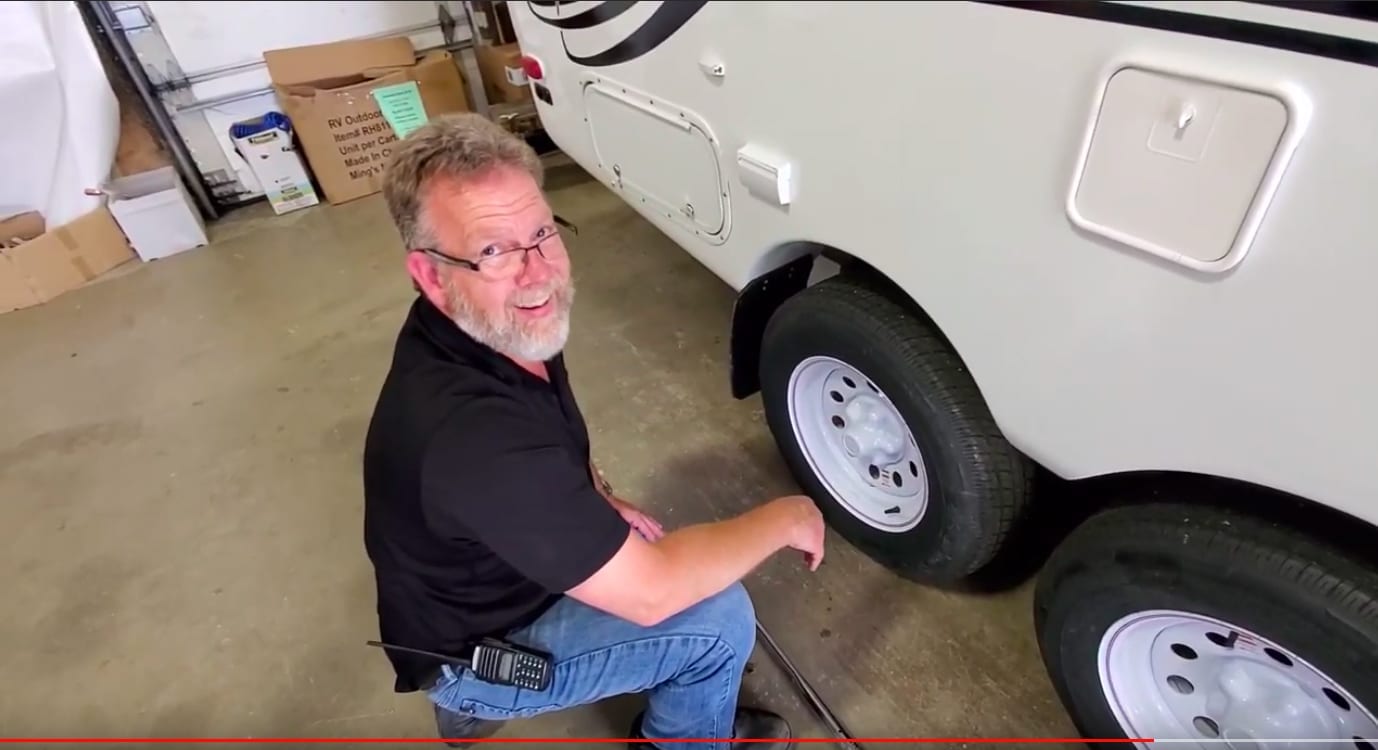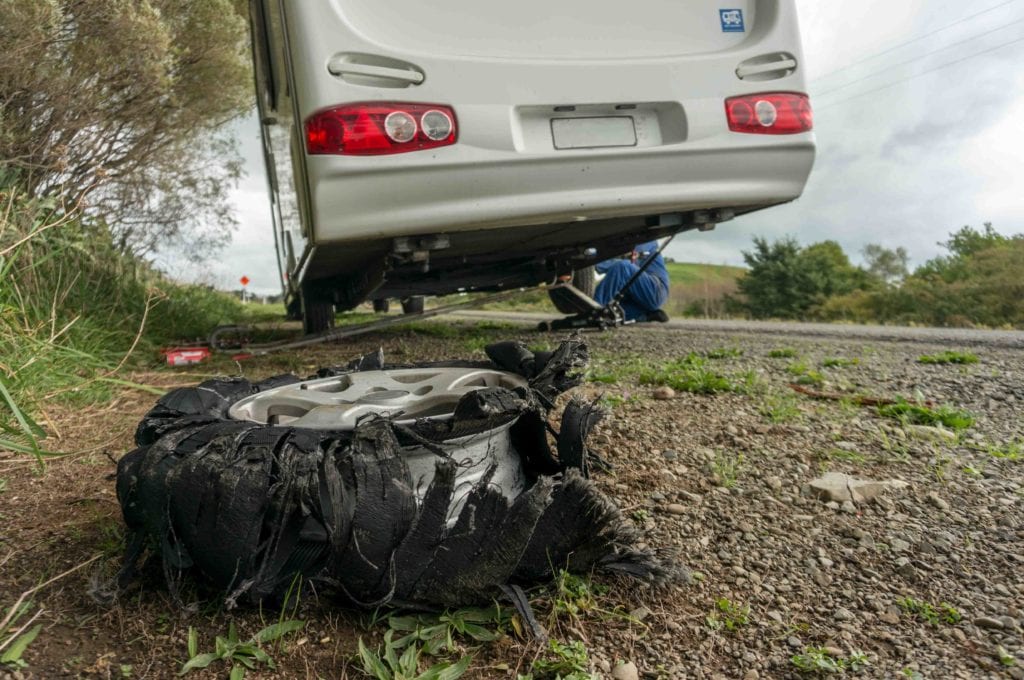How to Avoid a Blown Tire on Your RV
Blowing a tire on your travel trailer can be frightening and dangerous. Not only do you have a lot of weight to contend with, but most tire blowouts also occur far from your home (and sometimes in desolate areas). Additionally, high rates of speed on the interstate or highways can quickly end your vacation and even result in a trip to the hospital.
The unfortunate reality is flats and blown tires happen. But there are precautions you can take to lower the chances of experiencing one. With a little care and caution, you can reduce the chances of blowing a tire dramatically. Here’s how:
1. Start with the right tires
The most important thing that you can do to avoid a tire blowout is to start with the right tires. Tire manufacturers test their tires and recommend a tire size. That is the only tire size that you should put on your RV. Putting on another size with another weight rating is asking for trouble.
Invest in quality tires. Remember, tires are your RV’s connection to the road, so you want to buy quality tires instead of going with lower quality tires, even if they are “the best deal.” Better tires pay for themselves in safety and longevity.

2. Check your tires regularly to avoid blowouts
Next, check your tires regularly. You should check your tires at the beginning of every trip, as well as daily while you are on the road.
Look for :
- Uneven wear
- Bulges
- Tire dry rot (look for cracks along the tire wall)
- Lodge objects like screws and nails
If you notice any of these, you need to have the tire replaced as soon as possible.
Additionally, check the depth of the tread and look for the wear bar on the tire. It will indicate that there isn’t enough tread left and that the tires need to be replaced.
If you can’t change your tire on the spot, make sure that you drive slowly and at a safe speed to the tire shop.
Vibrating or bouncing caused by a tire indicates that you need to pull over immediately and check your tires’ condition. When it comes to tires. You’re better safe than sorry. Don’t hesitate to call a tow company.
3. Inflate your tires to the correct pressure
A tire at the wrong pressure is as dangerous as putting the wrong tires on your RV. If the tires are underinflated, they will heat up and could blow. If they are overinflated, they can lose traction and bounce when you are on rough roads. Both will cause tires to wear unevenly.
Buy yourself a quality pressure gauge, and check tire pressure before you leave and each morning.
Even better is installing a tire pressure monitoring system. This will check your tires continually, and alert you to a tire that might be losing pressure due to a puncture incurred as you are driving.
4. Double check that you’re within the proper weight range of your RV
Don’t overload your RV when you travel. An overloaded RV will cause the tires to overheat and possibly blow. Check the weight of your loaded vehicle and compare that with the weight rating of the tires. Make sure that you are below the rating.
Packing lightly is one way to help keep the weight down.

Other tips to avoid tire blowout and extend your tires’ life
1. Using tire covers when parked can extend the life of your tires.
Sun can damage your tires, so you might want to invest in tire covers that can protect your tires when your RV is parked or in storage. Investing a little in covers can help prolong the life of your tires and save you money in the long run.
2. Blowouts can be causes by drastic changes in the weather
If your tires are correctly inflated when you start your day, you can still have issues if the weather heats up or cools off. Your tire pressure can change as much as 2 psi for every 10°F. That means it can easily go up or down enough to cause problems if the weather changes drastically. (Another great reason to invest in a tire pressure monitoring system).
And remember that when you park, the grass is cooler and better on your tires than asphalt or cement.
3. Driving style affects tire safety
The way that you drive can affect your tires. Driving faster or making a lot of hard stops can heat your tires. Maintaining a safe speed and watching down the road so that you don’t have to slam on the breaks will decrease the chances for a blowout. Not only will it prevent blowouts, but it will add life to the tires as well.
4. Replace your tires when they get old whether they look worn or not
Manufacturers will estimate how long a tire can be used safely. This is not just a ploy to sell more tires. Because you cannot see the belts inside of the tire, you can have a tire that looks fine on the outside but has damaged belts on the inside.
Sometimes, but not all the time, you can feel the vibration caused by damaged belts. To be on the safe side, replace tires that have reached their expiration date. If you can’t find the expiration date for your tires, replacing them after five years is a good rule of thumb.
5. Tire safety = more fun on the road
With a little foresight and some common sense, you can avoid a possible catastrophic blowout on your RV. While all the checking might not be fun, it is much better and easier than blowing a tire in a remote area and having to put on the spare. So, remember to reduce the weight you tow, check your tires often, and invest in tires worthy of your life.
Want to learn more about why a light-weight fiberglass trailer made by Escape is a safer option on the road? Book a personal video tour
To receive our newsletter by e-mail, please click the “Subscribe” button in the footer below.












